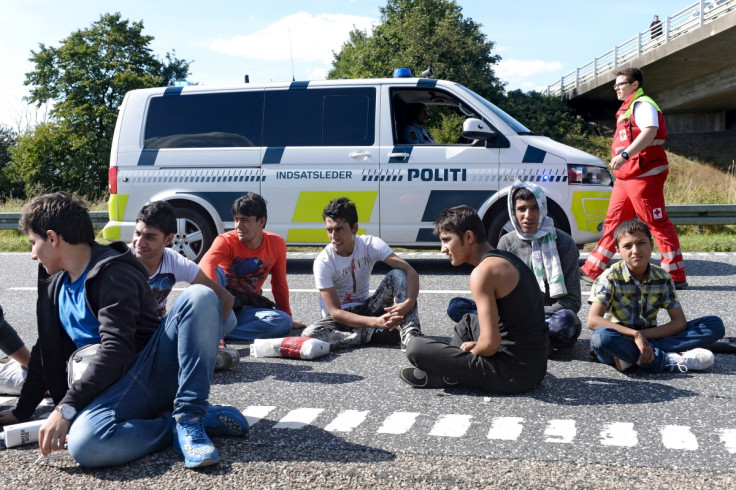Migrant crisis: Denmark's parliament votes on making country 'less attractive' to asylum-seekers

Denmark's parliament will vote today (26 January) on whether assets from refugees and migrants should be seized in order to fund their upkeep. It will also consider delaying family reunifications in a bid to make the country "less attractive" to asylum seekers. Prime Minister Lars Lokke Rasmussen's centre-right Venstre party has faced an international backlash over the proposal requiring people to hand over their valuables, which was described as having "a particularly bitter connotation in Europe" by the Washington Post.
The UN Refugee Agency's (UNHCR) senior regional strategic communications and advocacy officer, Zoran Stevanovic, told IBTimes UK: "[The] UNHCR is concerned by the decision to give the Danish police the authority to search and confiscate valuables from asylum-seekers. Seizing assets from asylum-seekers is sending damaging messages and runs the risk of fuelling sentiments of fear and discrimination rather than promoting solidarity with individuals in need of protection."
The controversial move would see authorities confiscate cash or items over the value of 10,000 Kroner (£1,024, €1,340, $1,452), but would not cover belongings of sentimental value such as wedding rings, integration minister Inger Stoejberg said. The prospective law – which has been compared to Nazi Germany's treatment of Jews – has been described by Rasmussen as "the most misunderstood bill in Denmark's history".
According to an opinion poll, 70% of Danes consider immigration a key issue and the bill has considerable support from across the political spectrum. Despite its traditional position as a bastion for refugee rights, the latest political move shows an increasing hostility towards arrivals in many parts of Europe. Danish politician Marcus Knuth said Copenhagen needs "to take measures to make Denmark a little less attractive compared to other European countries that people seek asylum in".
The UNHCR has described the bill as "an affront to their [refugees'] dignity and an arbitrary interference with their right to privacy". But a spokesman for the Venstre party has shrugged off criticism, saying it is simply a contributory measure.
"All Danish citizens and refugees coming here receive universal health care; you receive education from preschool to university, and you receive elderly care; you receive language training and integration training free of charge, paid for by the government," said Jakob Ellemann-Jensen.
"The only thing, the only demand that we set to measure this is if you have the means to pay for your housing and for your food – regardless of whether you are a Dane or whether you are a refugee – then you should," Ellemann-Jensen added. "And if you can't do this, then the government will provide for you. This is the essence of this bill."
Should the bill pass, it would put an even greater strain on refugees as they could be forced to wait three years instead of one before they can be joined by their family members. The costs associated with transporting relatives to the country of asylum would be covered by the refugee.
Expressing alarm that the prospective bill does not comply with Copenhagen's obligations under international law, Stevanovic said: "The law introduces restrictive measures on asylum seekers that increasingly hinder their ability to apply for asylum in Denmark.
"We are particularly concerned by reduced social benefits and restricted access to family reunification. We are also concerned that refugees with temporary protection are only allowed to reside in Denmark for one year and yet are only able to apply for family reunification after three years," Stevanovic added.
Amnesty International said this leaves refugees with "an impossible choice". Underlining the stark choice they would face, Amnesty International spokeswoman Gauri van Gulik said: "Either bring children and other loved ones on dangerous, even lethal journeys, or leave them behind and face a prolonged separation."
© Copyright IBTimes 2025. All rights reserved.






















